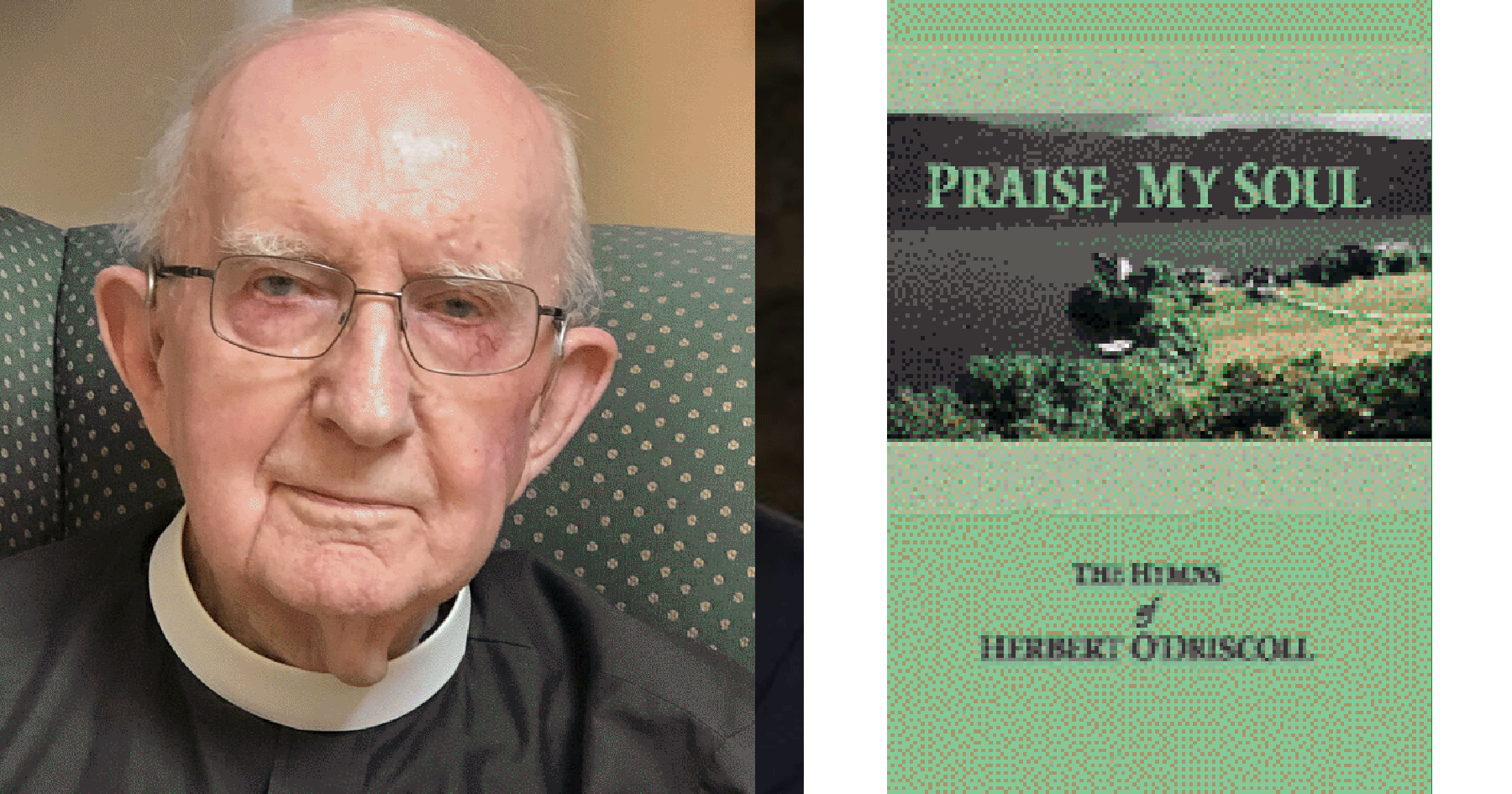Over this past summer, the world lost one of its most highly regarded preachers in the Anglican Church. The Reverend Canon Herbert O’Driscoll died at 95 on July 25. In addition to his preaching, he will be remembered as a great storyteller, author of numerous books on bible interpretation, and spirituality and he was a prolific hymn writer. Herbert O’Driscoll was a kind, warmhearted, and engaging person. I am sure everyone who crossed his path felt blessed to have known him. I am one such person. My connection to him was initially through my late husband, the Very Reverend Allan Reed, and over the years I had the opportunity to work with Herb in my capacity as a musician. Some years ago when he came to Kelowna he gifted me his book, “Praise My Soul: The Hymns of Herbert O’Driscoll,” so when I heard the news of his death I was suddenly reminded of it and could not let an opportunity to honour him pass by without writing about this legacy.
Many of you will be familiar with a few of Herb’s hymns from singing them in church, but only 6 can be found in Common Praise. Among them is “The Love of Jesus Calls Us,” “Come and Journey with a Saviour” and “Let My People Seek their Freedom.” Unfortunately, these are just a handful of the 43 that are in his book, and I am sure he wrote many more that were never published. I must clarify that Herb wrote hymn texts only. He was a poet not a composer, so my assumption is that the hymns chosen for Common Praise were those set to tunes that were appealing and easy to sing for the average churchgoer, among other criteria.
Now, what about the rest of those hymns? Through reading aloud and playing all 43 of them I discovered why his writing has and will endure the test of time. Firstly, Herb included notes on each, giving the singer/reader insight into what he was thinking at the time. Secondly, there were specific characteristics in his writing that began to pop up for me; such as evocative and vibrant imagery. Many of his hymns also ask questions rather than tell us what we should do. He has brought stories from the past into the present in a way that makes them are relatable to today’s church and he sometimes approaches familiar subjects from an unexpected perspective. I am sure there is much more I could say if I had time to do a really deep dive, but for this article I will highlight three hymns that spoke to me.
“O My Saviour in the Manger” – This hymn is immediately attractive because it is set to the familiar Welsh folk tune “Suo Gan.” Herb was inspired by the story of C. S. Lewis and his wife as she was dying. When Lewis expressed his dread of losing her, she replied that pain was part of their present pleasure in being together. Both are interwoven. Herb translated her thought as he wrote this hymn, juxtaposing simple images related to the birth Jesus and his future crucifixion.
“Three Tall Trees Stood on a Windy Hill” – This hymn was derived from a very old folk story about three trees that were cut down to become a manger, a fishing boat, a cross, and ending with a resurrection verse. Two tunes are offered for this hymn. One is very bright and child-like, but I prefer the minor key setting by Alfred V. Fedak. It gives more meaning and depth to the words.
“Who are We Who Stand and Sing” – Both the words and music are very strong and easily learned. It makes a statement about who we are as Christians and how we must continue to be aware of what we stand for in our ever changing culture.
If you want to find out more details or order this wonderful collection of hymns it is still available through Selah Publishing for $15.00 US at https://selahpub.com/store/CongregationalSong/HymnCollections/125-445-PraiseMySoul.html


